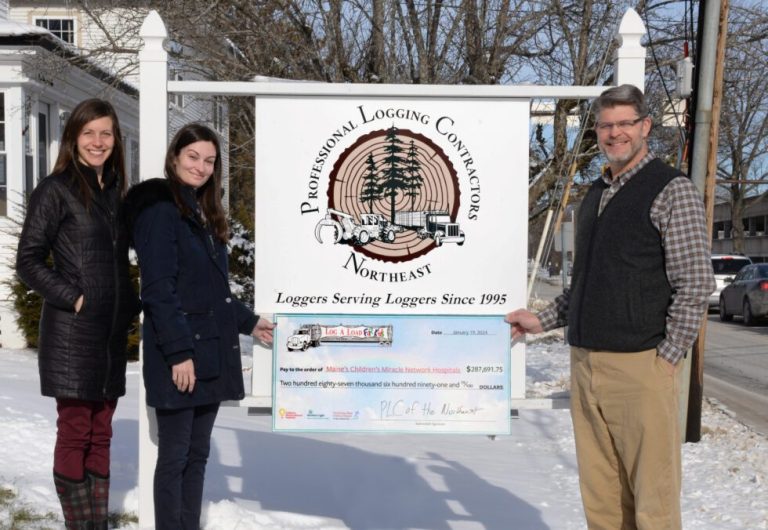Maine loggers applaud inclusion of $200 million for timber harvesters and haulers in proposed COVID-19 Relief Package
AUGUSTA – The Professional Logging Contractors (PLC) of Maine is applauding the announcement Monday that $200 million in aid for timber harvesters and haulers has been included in a bipartisan $908 billion Senate COVID-19 relief package, and crediting Maine’s U.S. Senators Susan Collins and Angus King for their tireless work to ensure the logging industry was not left out of the proposal.
If the package is approved, the aid would go to timber harvesting and hauling businesses that have, as a result of the COVID–19 pandemic, experienced a loss of not less than 10 percent in gross revenue during the period beginning on January 1, 2020, and ending on December 1, 2020, as compared to the gross revenue of the eligible entity during the same period in 2019.
“This announcement is a historic one not only for Maine’s timber harvesters and haulers, but for the entire industry in the United States,” Dana Doran, Executive Director of the Professional Logging Contractors of Maine, said. “At no prior time in our nation’s history have loggers been offered formal support and relief from our nation’s government, and we want to thank Senators Collins and King for their tireless efforts on behalf of the hard-working small family businesses in the industry. Those businesses have fought for months to survive the economic effects of the pandemic without direct aid as they watched other industries receive help, and now we must ensure that this aid reaches them before it is too late.”
Details of the aid package were announced at a press conference Monday attended by Senators Collins and King.
Most Maine logging contractors who are members of the PLC, the state’s trade association for timber harvesters and haulers, are reporting a 30-40 percent reduction in wood markets in 2020. Many are suffering severe revenue losses, layoffs, loss of clients, reduced productivity, and inability to plan for the future. The economic effects of the ongoing COVID-19 pandemic and the loss of the Pixelle Specialty Solutions pulp mill in Jay to an explosion have created a perfect storm for the industry that is threatening its very survival.
While Maine’s entire Congressional delegation and representatives of other timber-producing states have supported aid proposals for U.S. timber harvesters and haulers for months, the industry has been left out of every previous relief package while billions have flowed to farmers, fishermen, and even growers of Christmas trees.
Most recently, On Sept. 18, President Donald Trump and USDA Secretary of Agriculture Sonny Perdue announced the launch of the nation’s second agriculture pandemic relief package, Coronavirus Food Assistance Program 2 (CFAP2). The new $14 billion package added tobacco, hemp and Christmas trees to the list of eligible crops, yet as with the first CFAP package, timber was left off the list. More than $7 billion in payments to farmers were approved in the first month of CFAP2 alone. Zero dollars went to timber harvesters and haulers.
In response, a bipartisan group of legislators from across the U.S. including Maine Senators Susan Collins and Angus King, and Maine Representatives Jared Golden and Chellie Pingree, fired off letters to Perdue seeking a change in CFAP that would allow loggers to qualify for aid. The change was denied.
The U.S. farming industry alone has received billions in federal aid to offset losses from the U.S.-China Trade War since 2018, and this year received billions more to offset losses from the COVID-19 pandemic. Total federal aid to U.S. farmers in 2020 is at record levels, reaching $40 billion by October. Though loggers are “farmers of the forest” harvesting a renewable crop, they received none.
“Maine timber harvesters and haulers who are suffering in the current crisis must not be forgotten and the federal aid proposed in the Senate relief package must be approved soon to save the family businesses and communities that depend on it,” Doran said. “Maine’s heritage industries of fishing, farming, and logging need support in this time of crisis, yet loggers have been left to fend for themselves as farmers and fishermen receive help. This must change if the industry is to survive and we are hopeful that at long last, with this aid proposal, loggers will not be left behind.”

